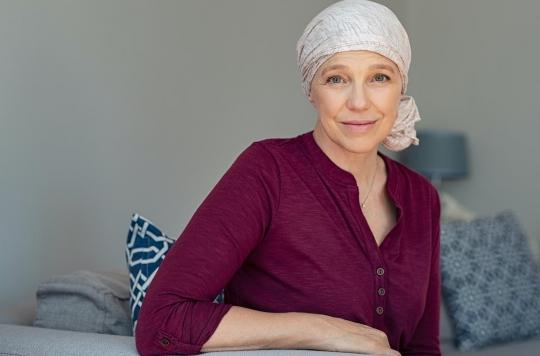Delays in cancer treatment lead to an increase in the risk of death from 6 to 13%, which increases as the delay increases. Figures whose resonance is particularly strong in the midst of a health crisis where certain treatments are deferred.

- Extending the waiting period for this type of operation to 12 weeks instead of 6 increased the risk of mortality by 9%.
- A four-week delay for surgery increases mortality by 6% to 8%.
- For breast cancer, a delay of between eight and twelve weeks increases the risk of mortality between 17 and 26%.
- The drop in screenings, estimated at 30% during the first confinement, could result in an increase in cancer mortality between 2 and 5% within 5 years.
Alongside the direct victims of Covid-19, there are the collateral victims. Among them are all the patients who have had their operations rescheduled, those who have fallen behind in their treatment or in their diagnosis. British researchers have looked at the consequences of delaying treatment for seven types of cancer and have revealed that a month’s delay leads to an increased risk of death. The longer the delay, the greater the risk, they add in the study published on November 4 in the journal BMJ.
A risk that grows as the delay increases
According to the researchers, a month of delay leads to an increase in the risk of death of 6 to 13%, a figure that increases as the delay increases. During lockdown last spring, 12-week delays in operations for women with breast cancer will lead to 6,100 more deaths in the US and 1,400 in the UK in just one year, say Researchers. To do this, they studied 34 studies published over the past twenty years to analyze the consequences of delayed treatment of seven types of cancer. “Treatment delays are the exception but can still affect 10% to 15% of patients“Outside the pandemic period as at present, described oncologist Ajay Aggarwal, one of the authors of the study, to AFP.
These results are contradictory with the health strategies of certain countries, pose the researchers. “Some countries have published recommendations on the prioritization of cancer surgeries, which the results of this study do not seem to validate.”, they continue. The authors take the example of the United Kingdom where delays of 10 to 12 weeks have been taken for the treatment of certain pathologies such as colorectal surgeries without negative effects for patients having been estimated. “We found that increasing the waiting time for this type of operation to 12 weeks instead of 6 increased the risk of mortality by 9%”, noted the researchers.
A risk that should invite reflection
More generally, a delay of four weeks for surgery increases mortality by 6% to 8%, by 9% for radiotherapy of head and neck cancer and climbs to 13% for adjuvant treatment of cancers. colorectal. For breast cancer, a delay of between eight and twelve weeks increases the risk of mortality between 17 and 26%, the researchers calculated. These results “invite reflection”, they estimate that the number of deprogramming of operations deemed non-urgent continues to increase in order to free up beds to accommodate Covid-19 patients.
In France, the alarm bell on the loss of chance which could be linked to the health crisis has been sounded by the League against cancer. She notably pointed to the drop in screenings, estimated at 30% during the first confinement, which could result in an increase in cancer mortality between 2 and 5% within 5 years. “The collateral effect must not be worse than the harm”, pleaded Julien Taieb, head of the digestive oncology department at the Georges-Pompidou European Hospital in Paris, to encourage patients to continue to come for screening at the hospital.
.

















